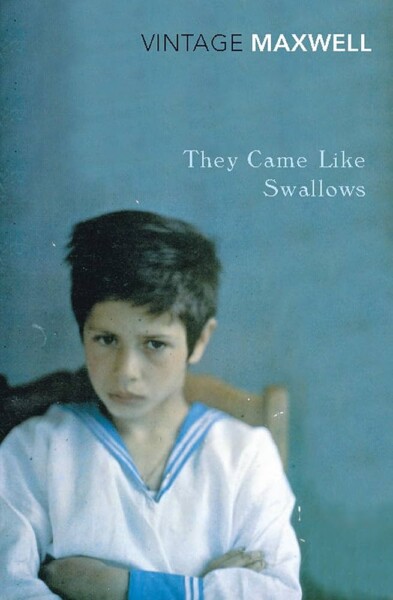They Came Like Swallows
by William Keepers Maxwell, Jr.
Reviewed by Ed Lengel

They Came Like Swallows, by William Keepers Maxwell, Jr. Originally published 1937.
William Keepers Maxwell, Jr., was one of the finest—but least known—American novelists of the twentieth century. His second novel, They Came Like Swallows, was a semi-autobiographical testament to his mother—and—motherhood. The title comes from W. B. Yeat’s poem Coole Park, 1929: “They came like swallows and like swallows went, / And yet a woman’s powerful character / Could keep a Swallow to its first intent; …”
Thus did Elizabeth Morison, wife of James, and mother of Robert and Bunny, keep her family members to their “first intent” as, from their home in southern Illinois in the autumn and winter of 1918-1919, they witnessed the end of the First World War, and the Influenza Pandemic.
The tribute was given from three perspectives. It begins with Bunny, an eight-year-old boy whose life and perception of the world revolves around his mother. He’s a highly sensitive child, easily frightened, living in a deeply imaginative realm threatened by his father James, his older brother Robert, and neighborhood bullies—but also by shadowy, unseen presences lurking at reality’s periphery. One of those “existences” was his mother’s unborn child, a potential rival for his mother’s affection who threatens to upend his world. The war, and rumors of an illness called the Spanish Flu, are forces he cannot understand; Bunny shies away from his father’s pompous, fact-filled explanations on each, yearning instead for his mother’s simple certainties.
Robert, aged thirteen, appears from Bunny’s perspective little more than a bully; from his own narrative, we learn that he is just a boy, also grappling with the world’s cruelties, in a unique way, but also relying upon his mother to provide direction. At a young age, Robert lost his leg in a carriage accident tragedy that ruined his beloved Aunt Irene’s marriage and kindled bitter feelings echoing throughout a decade. Robert’s personal code, derived from his father, the books he read, and the ideas of his time, do not allow for any weakness; or even the admission that the loss of his leg, and his prosthetic replacement, could have limited him—least of all physically. Nor would he even admit his love for his younger brother, Bunny, whose sensitivities appear like effeminate weakness.
James too, from the eyes of his sons, seems stuffy and distant. Reading from his perspective in the book’s third part, however, we learn of his utter dependence upon Elizabeth, for direction and strength. Lacking affection from his own self-centered parents, and misunderstood by other members of the family, Robert has no role models, or even metrics by which to understand the responsibilities and rewards of fatherhood. He convinces himself, indeed, that he is utterly incapable not just of parenting, but of love. In fact, he relies upon Elizabeth to act as a kind of interpreter between his feelings and the outside world.
In the early twentieth century, America lived within an illusion not just of isolation, but of self-sufficiency. Three years before They Came Like Swallows took place, the wider world’s problems seemed like distant dramas, even playthings, akin to the adventure novels and toy villages that Bunny and Robert enjoy, to help them understand their meaning. World War I does not affect the Morisons immediately; James and the boys are too old to participate, and daily life in southern Illinois seems to continue day by day as—always—except for the newspaper reports of conflict, and peace. Yet it has served as a wakeup call.
The Influenza Pandemic that sweeps through the American heartland in the immediate aftermath of the Armistice in November 1918, thrusts people like the Morisons into the midst of a global cyclone they cannot comprehend. Closures of schools and churches seem incomprehensible—but they happen. Robert, dependent upon his school friends for validation, is devastated to hear that he cannot go out with them for fear of infection. Even Bunny, who lives within a private world, discovers that he will not have the luxury of standing aside as their community—and then the entire Morison family—is swept up in the Pandemic, and will never be the same again.
Drawing upon his own experiences, and writing in a gentle, introspective, empathic manner, Maxwell calls attention to the importance of simple, immortal strengths, especially the archetypal immortality of motherhood—which returns a seemingly directionless world to pursuing an original purpose with a singular goal.
Ed Lengel is an author, a speaker, and a storyteller.




